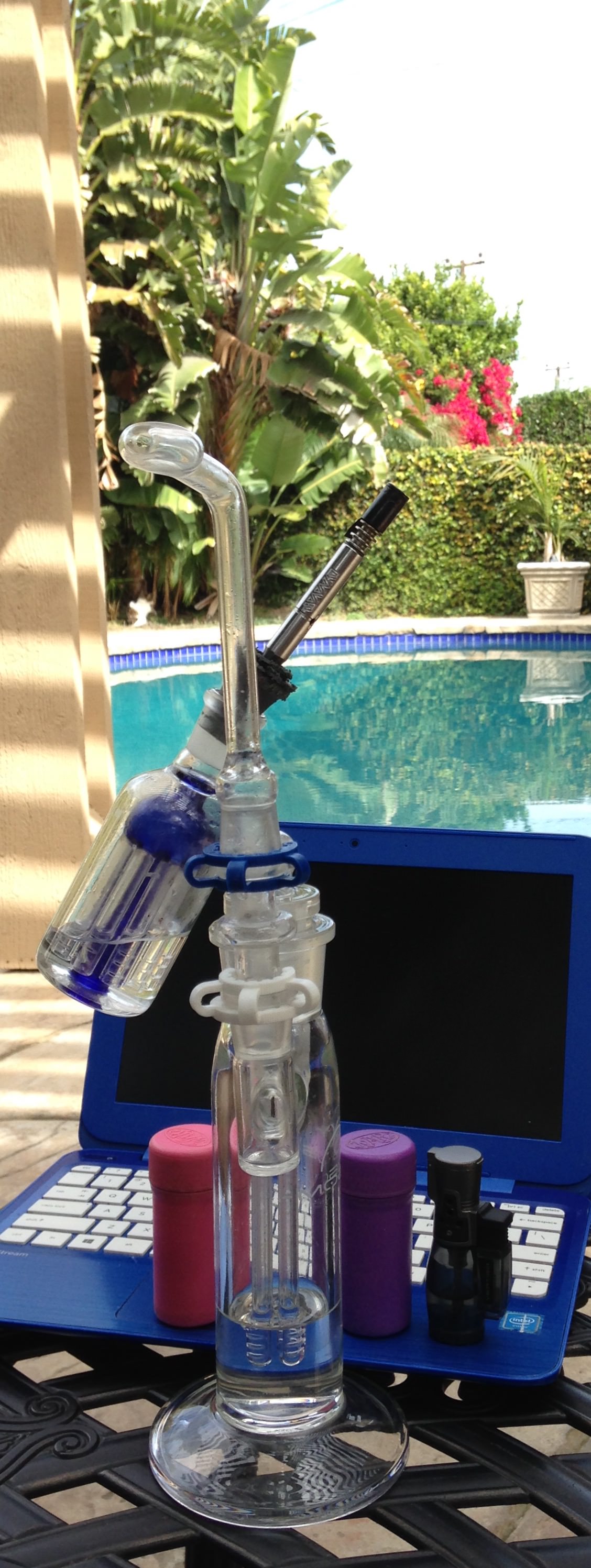Baron23
Well-Known Member
@momofthegoons @CarolKing
In my state's fledgling MMJ program, the bud tenders are useless. Trust me, regularly attending members of this and "the other" board know way the hell more than the counter clerks I have run into and, to tell the truth, I'd rather that then for them to have pretensions of actual medical knowledge (again, they are basically counter help).
The quality of our MMJ is going up rapidly but its all still a bit on the dry side. Selection is expanding, trimming looks much better, and at least one vertically integrated grow/dispensary was open with me and told me that they cured for 4 weeks which is better than some of the stuff that first came out.
Now, it cost me $250 for my initial Dr visit to get certified, its only good for a year and renews are $150, I bought a MJ ID card which is good for two years (yeah, I know...certs only good for a year and card for two??) which the state charges $50 for (a**holes that they are) but its really not needed. I can just go to the state's cannabis program site and print out a copy of my approved cert. Once presented to a dispensary, from that point onward all you need to do is show a Govt ID (drivers license will do) as they have to look you up in the state's database each time anyway to ensure your cert is indeed current.
The price for certs is going down...."clinics", which I view as more cert mills, are popping up but the fee is still always going to be over $100...really $150 is probably the minimum you will find. But I like my Doc, she is very active at the political level in my state also on MJ issues, and I don't get the feeling that she's just popping out certs for bucks.
I do remember the long ago days when there were methadone clinics in Wash, DC. Junkies would be lined up down the block with cash in hand and these two "clinics" were just pumping out the Tang. Went on for years before they got shut down. While I'm a big rec legal now supporter, I really don't like to see fake "clinics" and certs issued for hangnails, if you get my meaning. I think it just undermines the medical aspect of our program...but I would never point to someone and say that they don't deserve their med rec. Who am I to do such a thing. But I suspect that if every swinging you-know-what starts getting med recs, I'm afraid the state may step in and tighten requirements.
Just speculating, however.
Cheers
In my state's fledgling MMJ program, the bud tenders are useless. Trust me, regularly attending members of this and "the other" board know way the hell more than the counter clerks I have run into and, to tell the truth, I'd rather that then for them to have pretensions of actual medical knowledge (again, they are basically counter help).
The quality of our MMJ is going up rapidly but its all still a bit on the dry side. Selection is expanding, trimming looks much better, and at least one vertically integrated grow/dispensary was open with me and told me that they cured for 4 weeks which is better than some of the stuff that first came out.
Now, it cost me $250 for my initial Dr visit to get certified, its only good for a year and renews are $150, I bought a MJ ID card which is good for two years (yeah, I know...certs only good for a year and card for two??) which the state charges $50 for (a**holes that they are) but its really not needed. I can just go to the state's cannabis program site and print out a copy of my approved cert. Once presented to a dispensary, from that point onward all you need to do is show a Govt ID (drivers license will do) as they have to look you up in the state's database each time anyway to ensure your cert is indeed current.
The price for certs is going down...."clinics", which I view as more cert mills, are popping up but the fee is still always going to be over $100...really $150 is probably the minimum you will find. But I like my Doc, she is very active at the political level in my state also on MJ issues, and I don't get the feeling that she's just popping out certs for bucks.
I do remember the long ago days when there were methadone clinics in Wash, DC. Junkies would be lined up down the block with cash in hand and these two "clinics" were just pumping out the Tang. Went on for years before they got shut down. While I'm a big rec legal now supporter, I really don't like to see fake "clinics" and certs issued for hangnails, if you get my meaning. I think it just undermines the medical aspect of our program...but I would never point to someone and say that they don't deserve their med rec. Who am I to do such a thing. But I suspect that if every swinging you-know-what starts getting med recs, I'm afraid the state may step in and tighten requirements.
Just speculating, however.
Cheers


